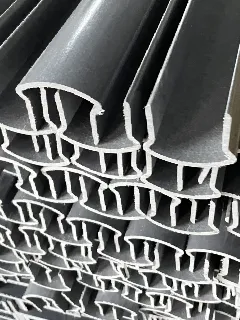loading...
- No. 9, Xingyuan South Street, Dongwaihuan Road, Zaoqiang County, Hengshui, Hebei, China
- admin@zjcomposites.com
- +86 15097380338
- Welcome to visit our website!
High-Quality Sectional Water Tanks for Efficient Water Storage
Sectional Water Tanks Efficient and Versatile Solutions for Water Storage
Sectional water tanks have become an increasingly popular choice for various water storage needs. These tanks are constructed from multiple panels or sections, which are typically made from materials such as fiberglass, stainless steel, or concrete. Their modular design not only allows for easy transportation and installation but also provides flexibility in capacity and configuration, making them suitable for a wide range of applications.
One of the primary advantages of sectional water tanks is their scalability. Unlike traditional cylindrical tanks, sectional tanks can be assembled on-site to meet specific capacity requirements. This feature is particularly beneficial for both residential and commercial settings, where water demands can vary significantly. Whether a small household needs a tank to collect rainwater or a large industrial facility requires substantial water storage for processing operations, sectional tanks can be customized to fit any need.
In addition to their versatility, sectional water tanks are known for their durability and long lifespan. High-quality materials used in their construction ensure that these tanks can withstand harsh environmental conditions. For instance, stainless steel tanks are resistant to corrosion, while fiberglass tanks offer exceptional strength and lightweight properties. These features help prevent maintenance issues over the years, making sectional tanks a cost-effective solution for water storage.
sectional water tank

Moreover, sectional water tanks have a relatively straightforward installation process. Unlike traditional concrete tanks, which require extensive groundwork and are time-consuming to build, sectional tanks can be assembled quickly. This efficiency not only reduces labor costs but also minimizes disruption to the surrounding environment. Many manufacturers provide prefabricated panels that can be easily transported to the installation site, allowing for faster deployment.
Another important aspect to consider is the ease of accessibility for maintenance and cleaning. Sectional tanks can be designed with access points that allow for routine inspections and cleaning, ensuring that water quality is maintained. This is particularly crucial for applications in the food and beverage industry, where hygiene standards must be upheld.
In conclusion, sectional water tanks are an excellent solution for diverse water storage needs. Their modular design, durability, and ease of installation make them a compelling choice for both residential and commercial applications. As sustainable practices gain more attention, the ability to customize these tanks for rainwater harvesting further enhances their appeal. With the right sectional water tank in place, users can secure a reliable water supply while also contributing to water conservation efforts. Whether for firefighting, irrigation, or simply storing potable water, sectional water tanks undoubtedly provide a practical and innovative approach to water storage.
-
GRP Structures: The Future of Lightweight, High-Performance EngineeringNewsJun.20,2025
-
FRP Water Tank: High-Performance Storage for Corrosive and Clean Water SystemsNewsJun.20,2025
-
FRP Square Tube: The New Industry Standard for Chemical and Structural ApplicationsNewsJun.20,2025
-
FRP Pultruded Profiles: The Ultimate Choice for Lightweight Structural StrengthNewsJun.20,2025
-
FRP Handrails: The Safer, Smarter, and Stronger Choice for Modern InfrastructureNewsJun.20,2025
-
FRP Grating: The Smart Solution for Durable, Lightweight Industrial FlooringNewsJun.20,2025
-
Why Choose a Galvanized Water Tank for Your Storage NeedsNewsMay.21,2025
